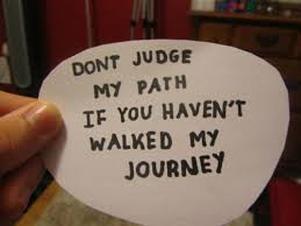
This seems like a very difficult task for most people.
Every day, we observe signs of people lacking empathy and lashing out at others, before they attempt to understand the entire situation. Consider these scenarios:
* A car driving below the speed limit and blocking traffic. --> Maybe they are lost or bringing home their new baby for the first time.
* A long line at the bank or grocery store. --> They need their money/items as much as you do.
* A scowl on someone’s face when you say ‘hello.’ --> Perhaps they just received bad news or they are feeling ill or they didn't see you or they are insecure.
* A loud, angry response to a simple question. --> Defensiveness is a sign of insecurity.
* Miscommunication via email or text. --> Perhaps direct phone call or in-person communication is needed to fully understand context and body language.

Ask yourself: Do I stop to think about another person’s feelings before I respond? Have I ever (or often) responded too aggressively for the situation? Have I ever overreacted to a situation? Do I have to be reminded to lower my voice or speak professionally to others? Do I rarely (or never) think of the other side of the situation before I respond?

What is a trigger? A trigger is an event, tone of voice, or action that causes a negative emotion (such as anger, frustration, sadness, anxiety, or agitation) in you. A trigger may not affect another person the same way. Your emotional response to the trigger is dictating your behavioral response.
Once you identify the trigger(s) that create strong, negative emotions within you, you can start to analyze how you respond to those triggers. YOU have control over how you respond to each circumstance. It is a choice to respond appropriately. Choosing to respond appropriately lets you be in control of your emotions and it preserves your relationships with other people.
Let’s practice!
| Situation A car driving below the speed limit and blocking traffic. A long line at the bank or grocery store. A scowl on someone’s face when you say ‘hello.’ A loud, angry response to a simple question. Miscommunication via email or text. | Emotional Response Anger and Anxiety (if late) Frustration or Irritation Disappointment, Embarrassment, Sadness, Rejection Anger, Hurt, Shock, Embarrassed Frustrated, Confused, Hurt | Inappropriate Action Honking repeatedly, tailgating, cursing, flipping car off Yelling, pushing, complaining Talk poorly about person behind their back; never speak to person again Yell, Insult, Fight Name-calling/Insults; Ignoring | Appropriate Action Slow down and wait for opportunity to pass; take deep breaths; call to say you will be late Remind self to give extra time for errands in future; start pleasant conversation with person in line Calmly ask if everything is ok and/or if you did anything to cause tension. Calmly state “Do not speak to me in that tone. I am ready to speak to you when you can speak to me respectfully.” Walk away Pause current conversation and apologize for miscommunication and try to start over. |
Remember: You are responsible for how you react to others. Practice being aware of your emotions and in control of your reactions in order to make appropriate choices for yourself.
If you need assistance managing your triggers, contact Bree today to schedule an initial counseling session.
 RSS Feed
RSS Feed